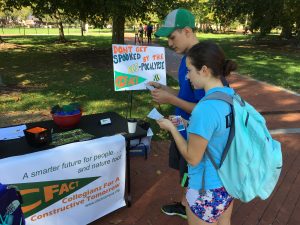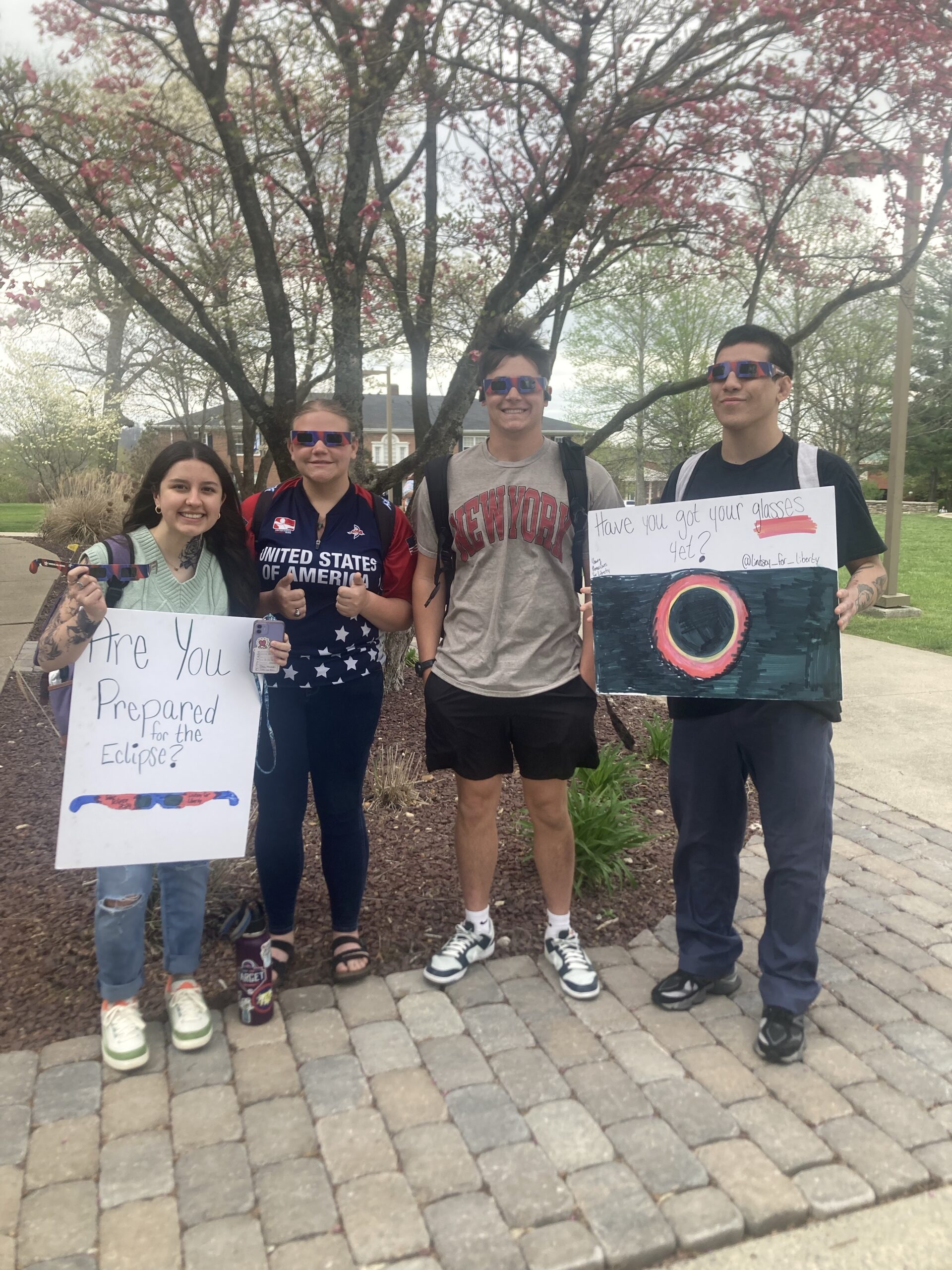Bees are dying. It’s the end of the world. There will be no flowers, no food, and its’ all humans’ and capitalism’s fault.
At least that’s what millennials are hearing on social media. Especially through posts like this one.
 In truth, there is much more to the “Bee-pocalypse” than meets the eye. For starters, bees are not going extinct. Phew, take a deep breath. CFACT exposed the truth of what is really going on with bee populations around the country to students at the University of Delaware to combat the lies that are spreading on social media from alarmist environmentalists.
In truth, there is much more to the “Bee-pocalypse” than meets the eye. For starters, bees are not going extinct. Phew, take a deep breath. CFACT exposed the truth of what is really going on with bee populations around the country to students at the University of Delaware to combat the lies that are spreading on social media from alarmist environmentalists.
“It’s important to make sure we have the facts on bee populations before we start using the wrong solutions for a problem that might not even exist,” said Melissa Brown, who engaged with collegians on campus. “Something starts going viral on social media, and no one checks the source of the information, or if they even list a source at all. There’s so much misinformation.”
This isn’t the first time that bees have started disappearing or dying off. Similar stories are reported to have happened to early beekeepers as way back as 940 A.D. in Ireland. And although bee populations have been going down overall, according to the Department of Agriculture, bee colonies actually increased by 100,000 from the period of 2000-2014. So perhaps, some of the drop-off is the natural fluctuation of bees adapting to predators and environments.
 However, there are most likely some impacts humans are having on bees. While scientists and social media seem to be solely placing the blame on something called neonicotinoid pesticides, these studies have completely ignored things like land development impacting bee habitat, the effects of older, less safe pesticides still in use, and most importantly, the impact of the
However, there are most likely some impacts humans are having on bees. While scientists and social media seem to be solely placing the blame on something called neonicotinoid pesticides, these studies have completely ignored things like land development impacting bee habitat, the effects of older, less safe pesticides still in use, and most importantly, the impact of the  parasitic Varroa destructor mite. Before we start panicking that we are killing off all the bees and ban neonicotinoids, a newer, very useful pesticide for farmers, perhaps we should make sure that this drop-off isn’t natural, or that the other factors listed above aren’t the culprits.
parasitic Varroa destructor mite. Before we start panicking that we are killing off all the bees and ban neonicotinoids, a newer, very useful pesticide for farmers, perhaps we should make sure that this drop-off isn’t natural, or that the other factors listed above aren’t the culprits.
Students were given a trivia question that focused on one of the facts listed above. Unfortunately, the vast majority got the questions wrong, proving the importance of this outreach effort. On the positive side, however, not one student was so drunk with the alarmist kool-aid that they refused to listen to CFACT’s facts on what is really going on with bees. Every student left better informed, prepared to investigate deeper when dubious memes or videos appear on Facebook.



